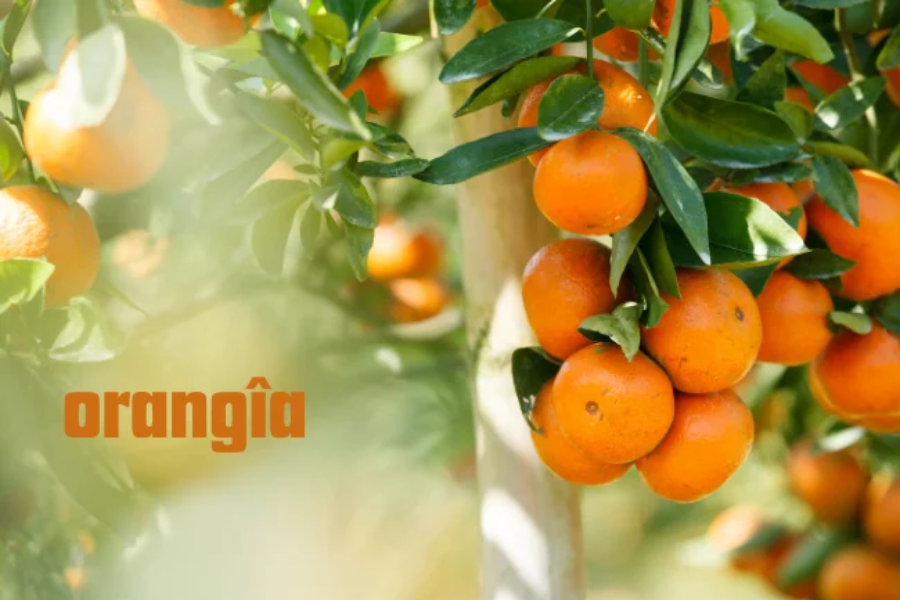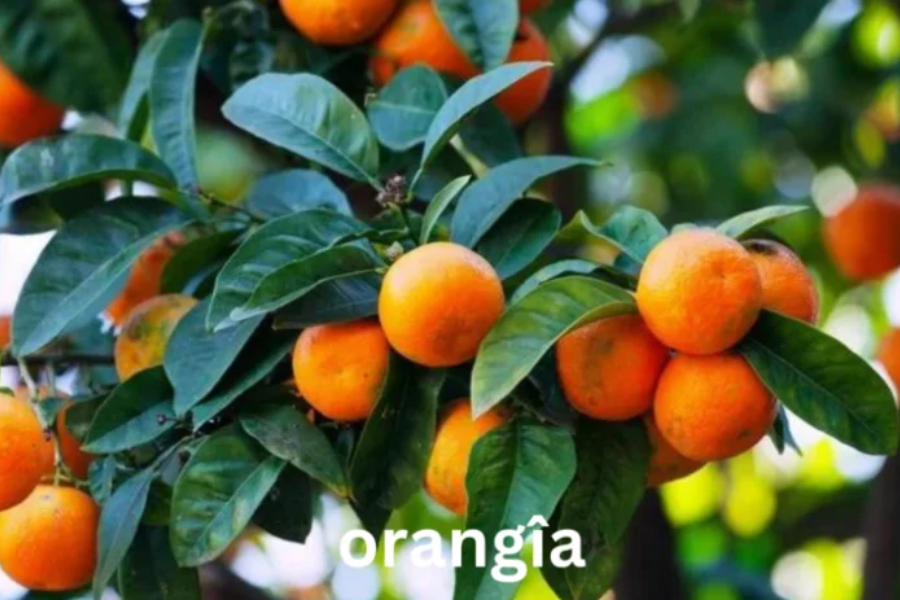The Enchanting Tale of Orangîa: A Mythical Fruit of Wonder and Mystery
In the rich landscape of human imagination, few legends captivate us as deeply as the story of Orangîa, a mythical fruit of extraordinary allure and mystery. Handed down through generations, the legend of Orangîa crosses cultures and borders, representing a universal desire for knowledge, health, and eternal youth. With vibrant descriptions and deep symbolism, this enchanting fruit holds a special place in the hearts of those who seek the extraordinary. In this article, we embark on a journey to explore the origins, characteristics, and cultural significance of Orangîa, where myth and wonder meet.
What Is Orangîa?
Orangîa, while mythical, is often described as a magical fruit with incredible properties. In the stories passed through time, it is said to have the power to heal, bring balance, and even enhance wisdom. It embodies the qualities humans have long sought—health, vitality, and wisdom. Though you won’t find Orangîa growing in any real-world orchard, its story has been a cornerstone in myths, where it symbolizes something extraordinary, rare, and transformative.
The Origins of the Myth
The legend of Orangîa is believed to have its roots in the lush, untamed forests of an ancient tropical paradise. According to the tale, the fruit was a divine gift from the gods, offered to humankind as a symbol of favor and grace. The name “Orangîa” is thought to derive from an ancient word meaning “golden essence,” reflecting its radiant color and esteemed reputation. Across different cultures, Orangîa is portrayed as a sacred fruit, guarded by powerful beings and accessible only to those deemed worthy. In many versions of the story, the fruit grows on a solitary tree deep within an enchanted forest, with branches heavy with glowing orbs of golden light.
A Vision of Orangîa
In descriptions from the legends, Orangîa is a small, golden-orange fruit with a mesmerizing glow. Its skin is smooth and lustrous, with a subtle shine that catches the light. The aroma is a blend of citrus and tropical flowers, with a hint of honey that entices the senses before the fruit is even opened. Once sliced, the interior reveals a pulpy, glowing core that seems to radiate warmth like liquid sunlight. The taste is said to be an exquisite blend of sweet and tart, mixing the brightness of oranges with the lush sweetness of mangoes and the tangy zest of pineapples. Orangîa is not just a visual delight but also a culinary marvel in the realm of mythical fruits.
The Magical Properties of Orangîa
Healing Powers
One of the most celebrated aspects of Orangîa is its legendary healing abilities. According to myth, a single bite could cure a wide range of ailments, from broken bones to chronic pain, even diseases thought incurable. The juice of Orangîa is often described as a powerful elixir, rejuvenating the body and restoring health.
Eternal Youth
Orangîa is sometimes called the “Fruit of Immortality” because of its rumored ability to grant eternal youth. The myth tells of those who consumed it experiencing a slowed aging process, maintaining their youthful appearance and vitality well into old age. Elders who retained the energy and strength of their youth often credited their longevity to this mystical fruit.
Enhanced Wisdom
Beyond its physical benefits, Orangîa was believed to sharpen the mind. Those who ate it were said to experience improved memory, clarity, and deeper insights into the mysteries of life. Philosophers and scholars in ancient stories sought Orangîa to gain greater knowledge and wisdom, viewing it as a fruit of enlightenment.
Emotional Harmony
In addition to its cognitive and physical gifts, Orangîa was believed to bring emotional and spiritual peace. Consuming the fruit was said to ease anxiety and bring a sense of balance, making it a symbol of inner calm and well-being. Healers and spiritual leaders often used it in rituals aimed at fostering peace and connecting with higher spiritual realms.
Fertility and Prosperity
Orangîa was also linked to fertility and prosperity in many cultures. It was often included in ceremonies to invoke blessings of abundance and growth, with some believing that planting an Orangîa tree would bring good fortune and a fruitful harvest. The fruit became a symbol of hope and a prosperous future, playing a central role in wedding rituals and fertility rites.
Orangîa in Culture and Tradition
Orangîa’s mythical status transcends its role as a magical fruit; it has also become a powerful symbol in art, literature, and spiritual ceremonies across various cultures. Often depicted in paintings and sculptures as a radiant golden orb, it represents divine presence, purity, and the quest for enlightenment. Festivals dedicated to Orangîa involve elaborate rituals, communal storytelling, and shared feasts, where representations of the fruit emphasize unity and celebration. These cultural expressions highlight the enduring legacy of Orangîa as a symbol of hope, wisdom, and the human desire to transcend the ordinary.
The Endless Quest for Orangîa
Throughout history, the search for Orangîa has inspired countless adventurers and scholars. Driven by tales of its miraculous properties and divine origins, explorers have ventured into dense jungles and ancient ruins in search of the elusive fruit. Although no tangible evidence of Orangîa has ever been found, the pursuit of it has led to rich cultural exchanges and new discoveries. The legend continues to inspire new generations to dream of the unknown, blending the spirit of adventure with the timeless human desire to uncover hidden truths.
Modern Interpretations of Orangîa
Today, Orangîa remains a symbol of the extraordinary in literature, art, and film. It often represents the pursuit of dreams, the quest for deeper understanding, and the desire for eternal youth. In modern storytelling, Orangîa stands as a metaphor for humanity’s drive to push beyond the limits of the ordinary and strive for greatness. Its allure as a mythical fruit continues to captivate, making it a timeless symbol in the world of myth and imagination.
FAQs:
1. What is Orangîa?
Orangîa is a mythical fruit often described in legends as having magical properties. It is said to have the power to heal, grant wisdom, provide eternal youth, and bring emotional and spiritual harmony.
2. Is Orangîa a real fruit?
No, Orangîa is not a real fruit. It exists purely in mythology and folklore, where it symbolizes human desires for health, longevity, and knowledge.
3. What does Orangîa look like?
According to legend, Orangîa is a small, golden-orange fruit with a glowing, radiant skin. Its interior is pulpy and bright, with a taste described as a blend of sweet and tart flavors, combining citrus, mango, and pineapple.
4. What are the magical properties of Orangîa?
Orangîa is said to have several magical properties, including healing powers, the ability to grant eternal youth, enhanced wisdom, emotional and spiritual harmony, and even fertility and prosperity.
5. Where does the myth of Orangîa come from?
The myth of Orangîa is believed to have originated in the tales of ancient tropical civilizations. These stories describe it as a divine gift from the gods, meant to benefit humanity with its extraordinary abilities.
6. How is Orangîa used in different cultures?
In various cultures, Orangîa is often seen as a symbol of divine favor, purity, and enlightenment. It features prominently in religious ceremonies, art, and festivals that celebrate unity, hope, and spiritual awakening.
7. Why is Orangîa called the “Fruit of Immortality”?
Orangîa is referred to as the “Fruit of Immortality” because it is said to slow down aging and grant eternal youth to those who consume it regularly, according to legend.
8. Has anyone ever found Orangîa?
Despite numerous mythical quests and expeditions mentioned in stories, no one has ever discovered physical evidence of Orangîa. Its existence remains purely within the realm of myth and legend.
9. How is Orangîa used in modern storytelling?
Orangîa is often reimagined in contemporary literature, films, and art as a symbol of human aspirations. It represents the pursuit of dreams, deeper wisdom, and the quest for something extraordinary.
10. Can Orangîa be related to any real-world fruits?
While Orangîa is purely fictional, its descriptions may evoke similarities to real-world tropical fruits like oranges, mangoes, or pineapples, but its magical properties set it apart as an entirely mythical concept.
Conclusion
Orangîa, the mythical fruit of wonder, remains a timeless symbol of human aspiration. From its legendary healing abilities to its promise of eternal youth and wisdom, Orangîa represents the universal desire to transcend the ordinary and touch the extraordinary. Though it only exists in the realm of stories and imagination, its enduring charm inspires us to continue exploring the mysteries of life, pushing the boundaries of knowledge, and seeking out the hidden wonders of the world. The legend of Orangîa reminds us that, sometimes, the journey of seeking the extraordinary is just as meaningful as finding it.



